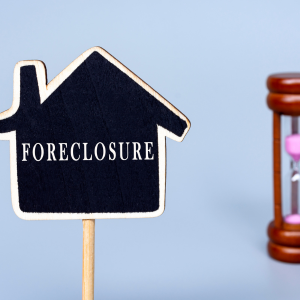
Explore the difference between a short sale and foreclosure in Illinois, focusing on how these real estate processes affect property decisions. Gain insights into Illinois real estate, lenders, and legal implications for homeowners facing foreclosure or considering a short sale.
Understanding Foreclosure in Illinois: A Comprehensive Guide
What is Foreclosure in Illinois?
In Illinois, foreclosure is a legal process that allows lenders to recover loan balances by selling mortgaged real estate. This occurs when homeowners fail to pay their mortgages on time. In Illinois, foreclosure is a judicial process, which means lenders must go through the court system to reclaim their property.
What Are the Stages of the Foreclosure Process in Illinois?

The foreclosure process in Illinois occurs in several stages:
- Missed Payments: Lenders may send a notice of default if a homeowner fails to make mortgage payments.
- Legal Proceedings: The lender files a lawsuit to begin the judicial foreclosure process. During this time, homeowners may contest the foreclosure.
- Order of Sale: If the court agrees with the lender, an order of sale is issued to schedule the property for auction.
- Auction: The property is sold through a public auction to the highest bidder.
- Eviction: If the homeowner does not vacate after the auction, they may face eviction proceedings.
How Long Does Foreclosure Take in Illinois?
The timeline for foreclosure in Illinois can range from several months to more than a year. The outcome is contingent upon various factors, including the possibility of the homeowner contesting the foreclosure. The timeline encompasses legal proceedings as well as the auction process. Homeowners ought to be mindful of these timelines and may benefit from obtaining legal counsel to explore their options.
What are My Rights as a Homeowner Facing Foreclosure in Illinois?
Illinois homeowners possess specific rights under state law when confronted with foreclosure.
Right to Reinstatement: Homeowners have the ability to stop foreclosure proceedings by settling any outstanding amounts along with applicable fees prior to the sale of the property.
Right to Redemption: Homeowners may have the opportunity to reclaim their property by repurchasing it following the auction.
Legal Assistance: Engaging with attorneys who specialize in foreclosure can offer valuable guidance and protection.
Support is available throughout the process from resources like housing counselors and legal aid organizations.
What Happens After a Foreclosure in Illinois?
Following a foreclosure in Illinois, the property’s fate typically follows:
Auction and Property Transfer: The property is sold at auction, and the winning bidder takes ownership.
Eviction Process: Former homeowners who remain after the auction may face eviction.
Credit Impact: Foreclosure negatively affects credit scores and future loan opportunities.
Deficiency Judgment: If the auction doesn’t cover the outstanding debt, lenders may seek a deficiency judgment.
By understanding these outcomes, homeowners can make informed decisions about their next steps. For tailored support, consider speaking with Illinois Real Estate Buyers or connecting with experienced cash home buyers in Bolingbrook and other cities in Illinois to explore your options.
Navigating a Short Sale in Illinois: A Detailed Explanation
What is a Short Sale in Illinois?
In Illinois, a short sale is when a homeowner sells their property for less than the amount owed on the mortgage. It is a strategy for those who can’t keep up with their mortgage payments. Here, the lender agrees to take a smaller payment to clear the mortgage lien, allowing the home to be sold.
Short sales are intricate transactions that need cooperation among the lender, homeowner (also known as the borrower), and often require negotiations to settle any remaining debt. Knowing each step in this process is vital for success.
Who is Involved in a Short Sale?

A number of parties are instrumental in a short sale:
- Lender: The financial entity responsible for holding the mortgage.
- Borrower/Seller: The individual initiating the short sale process.
- Buyer: The individual or organization acquiring the property.
- Realtor: A realtor is a real estate expert responsible for marketing properties and negotiating on behalf of the seller.
- Attorney: A legal professional who ensures that the transaction complies with Illinois regulations.
Negotiation and settlement are essential, necessitating consensus among all parties for the transaction to be finalized.
What are the Requirements for a Short Sale in Illinois?
The following are the requirements for executing a short sale in Illinois:
- Lender Approval: The lender is required to accept a payoff that is below the total mortgage amount.
- Homeowner Eligibility: The homeowner must demonstrate financial hardship, such as job loss or a decrease in income.
- Documentation: Essential documents, including financial statements and tax returns, are required to be submitted to the lender.
- Legal Compliance: The process must adhere to state legal requirements.
Upon fulfilling these conditions, the lender will evaluate the request to determine the outcome of the short sale.
How Long Does a Short Sale Take?
The time required for a short sale can vary significantly:
- Timeline: Some short sales are completed in 90 days, while others can take more than six months.
- Delays: Delays can occur as a result of slow lender responses, property appraisal issues, and paperwork problems.
- Process: The overall timeline is determined by how well the lender, borrower, and other parties manage the transaction.
Understanding the potential delays can help set realistic expectations.
What are the Advantages and Disadvantages of a Short Sale?
Short sales have both advantages and disadvantages:
Advantages for homeowners:
Avoids foreclosure and its negative effects on credit scores.
Offers a way to pay off debt and possibly avoid deficiency judgments.
Can be less stressful than foreclosure.
Disadvantages for homeowners:
Credit may still be harmed, but not to the same extent as foreclosure.
The lengthy and uncertain process can be difficult.
The IRS may impose taxes on the forgiven debt.
Advantages for lenders:
Helps to recover some mortgage debt without the hassle of foreclosure.
Reduces the costs associated with repossessing and reselling the property.
Impact on credit and financial implications:
Before proceeding with a short sale, you should understand the financial implications and seek professional advice. Depending on your specific situation, consulting experts can assist you in making informed decisions.
If you’re navigating a short sale in Illinois, reach out to Illinois Real Estate Buyers for expert guidance and explore options with a trusted cash for houses company in Hanover Park and surrounding Illinois cities to make the process smoother.
Short Sale vs. Foreclosure in Illinois: A Direct Comparison
Key Differences: Short Sale vs. Foreclosure in Illinois
Understanding the distinction between a short sale and foreclosure is crucial in the realm of real estate, particularly in Illinois, especially for homeowners looking to sell a home for a loss. A short sale occurs when a homeowner sells their property for an amount that is less than the outstanding mortgage balance, provided that the lender approves the transaction. This assists homeowners in preventing foreclosure and minimizing the effect on their credit score. Conversely, foreclosure is a legal procedure in which the bank assumes control of a property due to the homeowner’s inability to keep up with mortgage payments. This often results in a harmed credit report and the forfeiture of property.
Process: Short sales typically involve a lengthier process due to the need for negotiations with both the lender and potential buyers. Foreclosures may proceed more swiftly as a result of legal measures taken by the bank.
Homeowner Control: In a short sale, the homeowner retains a degree of influence over the sales process. During foreclosure, the bank assumes control.
Legal Impact: The legal implications of both processes vary, with foreclosure generally resulting in more serious legal outcomes.
Credit Score Impact: Short Sale vs. Foreclosure
Both short sales and foreclosures have a significant impact on your credit score, but they vary in intensity. A foreclosure is usually more damaging than a short sale.
Short Sale: A short sale typically causes a 50–150 point decline. It demonstrates the homeowner’s efforts to pay off the debt.
Foreclosure: Foreclosure may result in a drop of 200–300 points. It impacts future loan options and remains on the credit report for seven years.
Financial Difficulty: While both signify financial difficulties, a short sale might demonstrate proactive debt management.
Future Homeownership: Short Sale vs. Foreclosure
Those who have a short sale have a different chance of becoming homeowners in the future than those who have a foreclosure. Recovering and purchasing a new home take different amounts of time.
Short Sale: If certain requirements are met, people may be eligible for a new mortgage in as little as two years.
Foreclosure: After a foreclosure, one usually has to wait at least seven years to be qualified for a traditional mortgage.
Real Estate Market: Following a short sale, reentering the market is typically quicker and simpler, which promotes financial stability. Returning to the market after a short sale tends to be faster and easier, aiding financial stability.
Financial Implications: Short Sale vs. Foreclosure
Both choices have significant financial implications for homeowners. Understanding them can help in making informed decisions.
Debt: Short sales might leave the borrower liable for the remaining balance unless the lender waives it. Foreclosures clear the debt but hurt credit more severely.
Mortgage: Short sales often involve fewer costs compared to foreclosures, which can include legal fees.
Equity: Both result in a loss of equity, but a short sale might reduce some financial loss compared to a foreclosure.
Legal Ramifications: Short Sale vs. Foreclosure
Knowing the legal ramifications of each under Illinois law is crucial for homeowners.
Short Sale: Requires negotiation skills and legal guidance to protect rights. The legal requirements are generally less strict.
Foreclosure: Involves a complex legal process that can greatly affect a homeowner’s rights. Consulting with a real estate attorney is important.
Illinois Law: Each option is governed by specific laws that need careful consideration and legal advice.
By understanding these aspects, homeowners in Illinois can better handle the complexities of short sales and foreclosures, allowing them to make informed decisions that best fit their situation. For further help, consider reaching out to Illinois Real Estate Buyers for professional assistance. To learn more, check out how our process works for a clear breakdown of the steps involved.
Factors Influencing Your Choice: Short Sale or Foreclosure?
Equity in Your Property
When deciding between a short sale and a foreclosure, equity is extremely important. It is the difference between your home’s value and your mortgage balance. In Illinois real estate, homeowners with more equity frequently have better options. Understanding your financial situation, as well as the current value of your home, can help you make the right decision.
Condition of Your Property

The condition of your property influences its appraisal and valuation in a short sale or foreclosure. A well-maintained home is likely to sell for a higher price. Consider the following factors:
Regular maintenance
Necessary repairs
Results of a home inspection
Taking care of these can help your property’s value in the real estate market.
Time Until Foreclosure
Understanding the foreclosure timeline is essential for making informed decisions regarding mortgage default. In Illinois, the legal process may be lengthy, providing homeowners with several opportunities. The process of foreclosure typically encompasses:
- Failure to make payment
- Messages from the lender
- Judicial processes in accordance with Illinois legislation
Determining the amount of time available can aid in deciding between a short sale or foreclosure.
Your Financial Situation
Your financial situation, encompassing debt, income, and expenses, is essential. Homeowners experiencing financial difficulties should evaluate payment plans, consider the impact on their credit scores, and explore bankruptcy alternatives such as Chapter 7 or Chapter 13. Understanding these details enables you to choose the most suitable path ahead.
Tax Implications of Each Option
Short sales and foreclosures carry tax implications. The IRS might view forgiven debt as taxable income, which could result in a deficiency judgment. Grasping the tax implications and associated government regulations is essential. Effective planning can mitigate adverse effects and bolster your financial objectives.
For additional assistance and tailored guidance, reach out to Illinois Real Estate Buyers. Our team is prepared to support you with your unique requirements.
Getting Help with Short Sales and Foreclosures in Illinois
Available Resources for Homeowners
Homeowners in Illinois often find facing foreclosure and short sales to be overwhelming. Fortunately, several resources can provide valuable assistance and support:
Government Agencies: Programs like those from the Illinois Housing Development Authority (IHDA) offer significant help in preventing foreclosure.
Nonprofit Organizations: Groups such as the National Foundation for Credit Counseling provide counseling and guidance services.
Lenders and Banks: Some financial institutions have programs to aid homeowners in managing their mortgages during tough times.
Being aware of these resources can help homeowners make informed decisions and avoid foreclosure.
Questions to Ask a Real Estate Attorney
When dealing with foreclosures or short sales, you should consult with a real estate attorney. Here are important questions to ask:
- What are my foreclosure-related rights and duties under Illinois law?
- How can I legally postpone or halt the foreclosure process?
- What are my options for negotiating with my lender?
- Could you please advise me on the short sale process and legal implications?
- What documents will I need?
Asking these questions can help you understand the situation and protect your interests.
Dealing With an Uncooperative Lender
Dealing with an uncooperative lender can be difficult; however, here are some strategies:
- Negotiation: Try to renegotiate your mortgage terms, such as changing repayment schedules or lowering interest rates.
- Seeking Mediation: A neutral third party can help facilitate communication and lead to a compromise.
- Legal Advice: Talk to a real estate attorney about potential legal actions or settlements.
- Financial Counseling: Collaborate with credit counseling services to create a debt management plan.
Taking proactive steps can lead to solutions, even if your lender is uncooperative.
Additional Resources on Illinois Laws
Understanding the laws in Illinois regarding real estate transactions is essential:
- Illinois Mortgage Statutes: Get familiar with the state statutes that govern mortgage and foreclosure processes.
- Short Sale Regulations: Learn about the rules specific to short sales in Illinois.
- Government Websites: Visit official state websites for the most current information on legislation and compliance.
Learning about these laws will help you handle foreclosures and short sales legally and effectively.
How Illinois Real Estate Buyers Can Assist You
Real estate buyers in Illinois can greatly assist if you’re considering a short sale or facing foreclosure:
Market Knowledge: Buyers understand current market conditions, aiding in property valuation decisions.
Transaction Support: Experienced buyers can ensure smoother transactions that satisfy all parties involved.
Local Expertise: Buyers familiar with areas like Chicago and Cook County can offer advice tailored to local markets.
Connecting with knowledgeable real estate buyers can lighten the load of dealing with complex real estate challenges.
FAQs:
What is the Main Difference Between a Short Sale and a Foreclosure in Illinois?
A short sale involves selling a property for less than what is owed on the mortgage to avoid foreclosure. Foreclosure is when the lender legally takes ownership due to missed payments. They affect credit scores differently and have varied implications for borrowers.
How Do Short Sales and Foreclosures Affect Property Values in Illinois?
Short sales and foreclosures often sell for less than market value, which can lower neighborhood property values and affect the real estate market by reducing comparable sales used in property appraisals.
Are There Alternatives to Foreclosure in Illinois?
Yes, options include short sales, loan modification, refinancing, or a deed in lieu of foreclosure. It’s helpful to consult a professional to explore these options and understand their effects on financial stability.
What is Hud’s Role in Addressing Foreclosures?
HUD provides resources and counseling to homeowners facing foreclosure. They offer guidance through programs such as forbearance or repayment plans to help manage financial difficulties.
Can Filing for Bankruptcy Stop Foreclosure Proceedings in Illinois?
Filing for Chapter 7 or Chapter 13 bankruptcy can temporarily stop foreclosure with an automatic stay. However, its effects depend on individual situations, making it crucial to discuss with a legal advisor.
How Do Property Taxes Impact Short Sales and Foreclosures?
Outstanding property taxes can complicate short sales and need resolution before closing. In foreclosure, unpaid taxes may become the new owner’s responsibility after the sale.
What Are the Legal Rights and Obligations of Illinois Homeowners in Foreclosure?
Homeowners must be notified before foreclosure begins and can explore options to prevent foreclosure. Knowing the process, statutes, and redemption periods helps protect homeowners’ rights.
What Should You Consider When Choosing Between a Short Sale and Foreclosure?
Consider impacts on credit scores, future loan eligibility, and financial obligations. Consulting a real estate expert or attorney provides valuable insights and personalized advice.
Key Insights
- Understanding Foreclosures and Short Sales in Illinois: Explore the Illinois real estate market with insights on both foreclosures and short sales to help you make informed decisions.
- Comparison of Short Sale and Foreclosure: Learn about the differences between short sales and foreclosures, including their benefits and drawbacks, specific to Illinois real estate.
- Impact on Credit Score: Understand that a foreclosure can negatively affect your credit score for a long time. A short sale might be less damaging and could protect your financial opportunities in the Illinois housing market.
- Foreclosure Alternatives in Illinois: Consider strategies like loan modifications, repayment plans, or deed-in-lieu options as alternatives to foreclosure for homeowners in crisis.
- Benefits of a Short Sale: A short sale can prevent foreclosure and minimize credit impact for homeowners in Illinois.
- Foreclosure Process in Illinois: The Illinois foreclosure process follows specific laws and regulations, including timelines for borrowers to reinstate debts.
- Role of Government and Banks: Institutions such as HUD and banks play crucial roles in foreclosures and short sales by providing guidance and resources.
- Short Sale vs. Foreclosure: Financial Outcomes: Both short sales and foreclosures have unique financial outcomes. Understanding these can help property owners in Illinois plan strategically.
- Market Conditions Influence: Current economic and market conditions in Illinois can significantly affect the decision to pursue a short sale or foreclosure.
- Legal Considerations: It is essential to understand laws and regulations, including the statute of limitations, when navigating short sales and foreclosures in Illinois.
- Consultation with Experts: Working with real estate consultants and legal advisors can provide tailored advice and support through complex property transactions.
- Impact on Property Values: Short sales and foreclosures can impact surrounding property values and neighborhood market conditions in Illinois.
- Navigating Liens and Taxes: Addressing liens, taxes, and other encumbrances is crucial when negotiating a short sale or dealing with a foreclosure in Illinois.
- Call to Action: Contact us for expert consultation and assistance in navigating the complexities of short sales and foreclosures in Illinois. We provide professional guidance to help you make informed decisions.
Need to move on from your property? Whether you’re looking for a fast sale, want to skip expensive fixes, or prefer a smooth process, our team is ready to assist. We make fair offers, handle the paperwork, and keep things simple from start to finish. Want a quicker solution? Reach out at (773) 305-6373 for a no-obligation offer and take the next step today!
Helpful Illinois Blog Articles
- Capital Gains Tax When Selling a House in Illinois
- Someone to Take Over My Mortgage in Illinois
- Delinquent HOA Dues in Illinois
- Things to Fix Before Selling a House in Illinois
- Can I Sell My House With Furniture in Illinois
- Court Ordered Sale of Property in Illinois
- Closing Costs in Illinois Without a Realtor
- Difference Between a Short Sale and Foreclosure in Illinois

![companies that buy houses [market_city]](https://image-cdn.carrot.com/uploads/sites/72375/2024/02/Company-That-Buys-Houses-1920x800.jpg)
